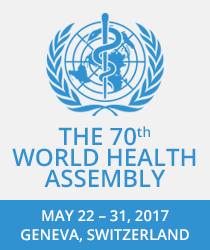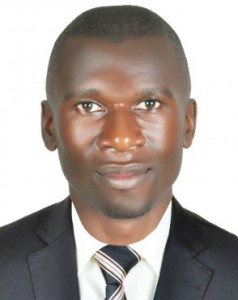To establish sustainable access to insulin in Cameroon, it is an imperative that reliance on pharmaceutical aid is revoked in favour of prioritising compulsory licensing and biosimilar usage. Until Novo Nordisk’s monopoly is challenged, patients will remain in uncertainty over access to insulin and essential equipment

By Rebecca Barlow-Noone*
Student, University of Leeds, UK
Novo Nordisk’s ‘Changing Diabetes’ Aid Programme Exacerbates Issues of Insulin Access, and Must End for Compulsory Licensing to be Effective
Aid programmes in lower income countries employed by insulin companies such as Novo Nordisk are driving dependency on donated, branded insulin and supplies, which inhibits sustainable access and blocks biosimilar uptake. Establishing dependence is the primary initiative, subordinating patient health for long-term corporate economic benefit. Whilst Novo Nordisk’s aid programmes have undeniably saved lives, true access to medicines can only be realised through policy changes within states. Compulsory licensing by governments, which involves forcibly accessing patented intellectual property to allow cheaper versions of drugs to be produced, is a key step towards ensuring insulin access is not prevented by exorbitant prices. By prioritising compulsory licensing of insulin biosimilars under World Trade Organisation guidelines, sustainable and affordable access may be achieved, as opposed to continued dependence on aid programme renewals and pharmaceutical monopoly.
Firstly, dependence on pharmaceutical charity establishes a dubious reliance on the continuation of aid, such as Novo Nordisk’s ‘Changing Diabetes in Children’ programme in Cameroon, where the company acts as the benefactor of healthcare. It is impossible to deny the impact the programme has had; for 7 years, around 695 people under the age of 21 have had access to healthcare, reducing mortality from 80% to 10% (Seidou, 2017). Yet as the 7 year term comes to an end, Novo Nordisk has remained remarkably silent on its future plans; leaving all children who have relied on the free healthcare with the prospect of losing life-saving treatment (Seidou, 2017). The same uncertainty occurred in 2014, after which Novo Nordisk decided to reinstate funding (Novo Nordisk, 2014); yet without a published set of clear aims, diabetes patients are left in a cycle of anxiety, where ‘donated products could stop at any moment, with no sustainability access plan for patients’, according to T1International’s Elizabeth Rowley (2017a). Not only is this an unsustainable method of providing care, it puts an unnecessary strain upon people already suffering a challenging health condition (Rowley, 2017b).
The reason given for the 3-year programme extension in 2014 was given by Novo Nordisk’s executive officer, Lars Rebien Sørensen, who gave the vague assertion that the company aims to ‘ensure the best possible scenario for the programme to be sustainable’ (Novo Nordisk, 2014, 9). Whilst figures on the number of clinics established and healthcare professionals trained emblazon the programme booklet, it gives no details on how access to insulin and essential medical care will continue: 9 clinics and 675 trainees (Novo Nordisk, 2014, p.14) unfortunately offers little comfort to patients when no information on sustainable supplies and insulin provision is mentioned, which people with type 1 diabetes need to survive.
Why is Novo Nordisk so impermeable with its long-term plans? One answer could be found in past instances of monopolistic drug marketing, where the market control was exploited to maintain prices and prevent compulsory licence uptake. For example in 2007, Abbott’s monopoly of antiretrovirals in Thailand was challenged by the government’s decision to issue a compulsory licence, in accordance with WTO law. As a result, Thailand was put on a US watch list for showing a ‘weakening of respect for patents’ (USTR 2007a, p.27, cited in Condon and Sinha, 2008, p.161) and their US Generalised System of Preferences (GSP) status was removed for 3 products (Yamabhai et. al., 2011). In addition, Abbott threatened to block the compulsory licence by not registering the patent and not selling the drug Aluvia (Condon and Sinha, 2008, p.162). Consequently, the Thai government was pressured to not issue a compulsory licence in return for slightly reduced drug prices at 1,000 USD annually per capita (Condon and Sinha, 2008, p.162); thus maintaining control of the market and eliminating generic competition.
Devastatingly, this is a common trope amongst pharmaceutical companies, where political and economic pressures override the scope of WTO patent laws. The developments in Cameroon and other countries involved in Novo Nordisk’s programme suggest a similar pathway is being undertaken. With infrastructure in place but cheaper alternatives to Novo Nordisk’s current donations of branded insulin unmentioned in programme documents (Novo Nordisk, 2014), the underlying economic interests of the company seem evident through the company’s ominous lack of transparency. This emphasises the imperative to establish alternative methods for equal, long-term diabetes care access before Novo Nordisk imposes charges for its goods. This must be done through the development of biosimilars and forming the political infrastructure to prevent pharmaceutical leverage from affecting compulsory licensing decisions, as was the case in Thailand.
In the case of Cameroon, compulsory licenses have already been issued for antiretrovirals in 2005 (Gardiner, 2005). This means there is hope the same can be done for insulin if the government recognises the legality and necessity to protect the lives of people with diabetes in the country. Furthermore, the government must remain resilient against US threats to trade in response to compromising pharmaceutical patents. Yamabhai et. al. found no evidence that the withdrawal of US GSP in Thailand affected foreign investment (2011, p.9), a fact which must be emphasised in Cameroon to demonstrate the economic viability of an insulin compulsory license.
To establish sustainable access in Cameroon, it is an imperative that reliance on pharmaceutical aid is phased out in favour of prioritising compulsory licensing and biosimilar usage. Until Novo Nordisk’s monopoly is challenged, patients will remain in uncertainty over access to insulin and essential equipment. Existing compulsory licensing legislation must be appropriately used and pharmaceutical pressure must be prevented to ensure sustainable biosimilar insulin access for all in the country.
Bibliography
Condon, B. J. and Sinha, T. 2008. Global Lessons from the AIDS Pandemic: Economic, Financial, Legal and Political Implications. Heidelburg: Springer-Verlag.
Gardiner, T. 2005. Email to Urbain Olanguena Awono, 8 January. Available from: http://www.essentialinventions.org/docs/cameroon/clcameroon8jan05en.html
Novo Nordisk, 2014. 10,000+ Children 2009-2014: The Changing Diabetes in Children Programme. [Leaflet]. Bagsværd: Novo Nordisk A/S. Available from: http://www.novonordisk.com/content/dam/Denmark/HQ/sustainability/commons/documents/CDIC_10000_children_2009-2014_ELECTRONIC.pdf
Rowley, E. 2017a. Interview with R. Barlow-Noone. 12 June, Leeds.
Rowley, E. 2017b. T1International Advocacy in Uganda. 6 June 2017. T1International. [Online]. [Accessed 27 June 2017]. Available from: https://www.t1international.com/blog/2017/06/06/t1international-uganda/
Seidou, T. 2017. Cameroon: Hundreds of type 1 diabetes to lose hope. 6 May 2017. Cameroon Concord. [Online]. [Accessed 5 June 2017]. Available from: http://cameroon-concord.com/health/8290-cameroon-hundreds-of-type-1-diabetes-to-lose-hope
Yamabhai, I., Mohara, A., Tantivess, S., Chaisiri, K. and Teerawattananon, Y. 2011. Government use licenses in Thailand: an assessment of the health and economic impacts. Globalisation and Health. 7(28), pp.1-12. [Online]. [Accessed 11 June 2017]. Available from: https://globalizationandhealth.biomedcentral.com/articles/10.1186/1744-8603-7-28
————————————————-
*Short Bio: After being diagnosed with T1 diabetes, I have worked as a volunteer for AYUDA (an international diabetes education charity), where I taught public sessions on diabetes management in the Dominican Republic, and provided insulin to those in greatest need. I had previously been a student of Arabic at the University of Exeter with the aim of working in international aid, but seeing the extreme medical poverty in the DR led me to focus my path. I am now studying on a science foundation year at the University of Leeds to get on to the Medical Sciences degree programme, with aims to work in international medical aid/insulin access









